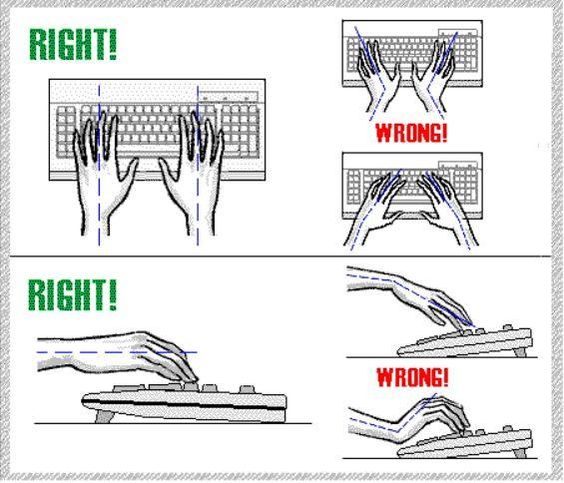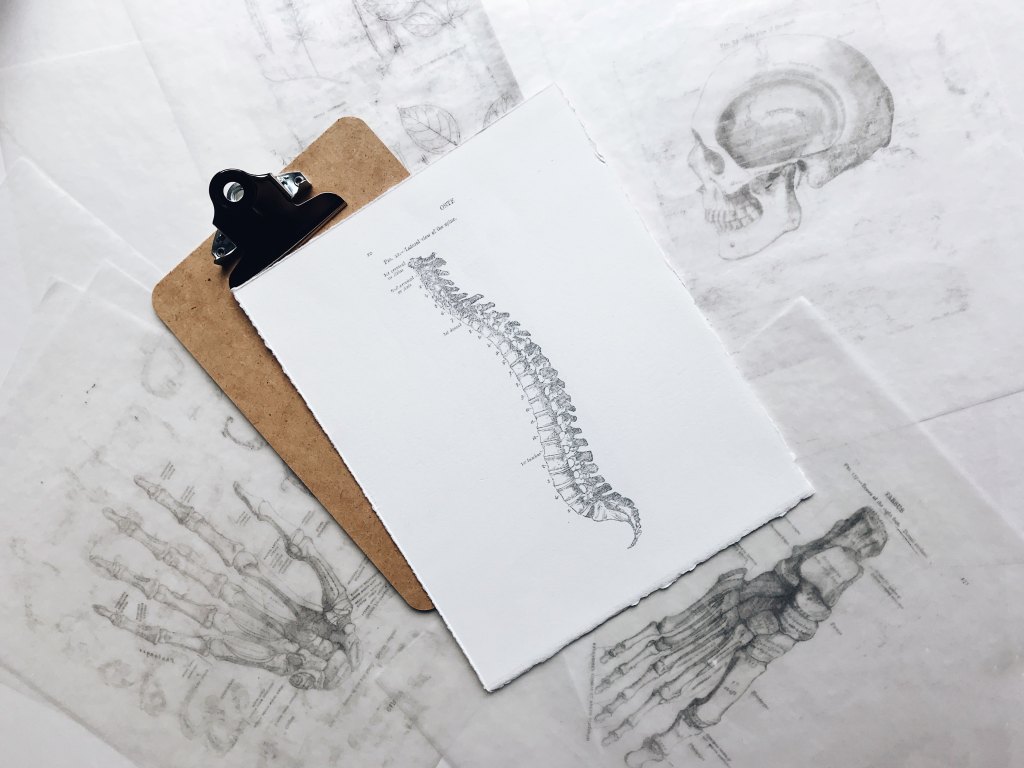ARGHHHHH my back!
The first time I heard someone mentioning about the term repetitive strain injury (RSI) was actually from a colleague of mine in the lab who has worked as a research assistant for more than 5 years before starting her PhD. According to her, too much pipetting over the past few years has caused her to constantly suffer from recurring shoulder ache.
I could never 100% relate to what she said, until I have to see a masseur over a shoulder ache that has been causing much distress and discomfort for the past two weeks. While having a conversation with the masseur over my shoulder ache issue, I realised it is not something I should brush aside as she was surprised that I have a “stiff back” at such a young age (p/s: I am in my mid-20s).
The fact is, I thought I will never be a victim of RSI, because all I do, is sit in front of the computer whole day and code. What could go wrong?
So what is Repetitive Strain Injury (RSI) and why should us, who are working in a lab setting, be weary of this health condition?
According to the definition here, RSI refers to “a general term used to describe the pain felt in muscles, nerves and tendons caused by repetitive movement and overuse.” It affects mostly the upper body like shoulders, wrist and elbows. Prolonged pain in these areas could even lead to more severe conditions such as tendontitis (inflammation of the tendon) and chronic shoulder pain.
Reflecting on my usual sitting posture while coding and the nature of my job, it is of no surprise I am a victim of RSI. I have been slouching a lot while staring at the screen, mostly leaning to the left side of my body. Although it seemed like a more “relaxed posture”, my habit is actually exerting a lot of stress onto my vertebrate discs of my spinal cord . A quick visit to the physio made me learnt that my back muscle has weakened over such long-hours of bad posture sitting, and if there is no intervention involved to correct my “bad habits”, I will have to live with a sore back for the rest of my life.
Now that’s a serious issue.
Besides research personal like me who work long-hours in front of a computer, I have also noticed that most of my friends and colleagues that work heavily with pipetting end up having a strained shoulder or wrist. This often has something to do with high repetition of pipetting motion, as well as bad body posture and arm movements while conducting experiments in the lab. Trust me, most scientists or PhD students can work for really long hours. This injury across a long period of time will soon evolve into a prolonged condition that never goes away. This impacts ones health as well as the ability to do work efficiently, especially if you are doing similar tasks in a long run for your science career.
So, now knowing that doing both wet-lab and dry-lab work exposes a person to equal risk of acquiring RSI, is there any way to prevent this?
For computational biologist/bioinformaticians:

Image acquired from https://hubpages.com/technology/Important-Tips-For-Working-On-Computer
Good sitting posture if probably the first “action-plan” for preventing RSI from too much desk work.
There are some really good tips here and here to help one assess whether your usual sitting posture is an RSI-prone posture and how to correct that. A few useful tips I have found to help me cope with my RSI condition includes:
- make sure the computer screen is at my eye-level as this helps prevent slouching
- have a comfortable chair that supports my lower back
- do frequent walks after sitting for more than an hour and do some office back stretching exercise to help strengthen my core back muscles (I never knew they were that weak until I tried these stretches )
- make sure your keyboard and mouse level allows your arm to rest flat and your elbow to bend 90 degrees to the table surface
- Using a back support strap to help with my posture correction
And much to my surprise, finger motions in typing using the keyboard has an impact on your wrist, which explains my quick Googling results that showed computational scientist as one of the occupations which are prone to RSI. For some people, it might be a good idea to consider ergonomic mouse and keyboard. It may look odd to some people, but I personally think it is a good investment health wise in a long run.
For wet-lab scientist:
There are a few sound advise here for those who work by the bench frequently. In summary, these are the few tips to prevent injury for over-pipetting:
- Always be aware of your posture while pipetting, resting your arm on the table provides more support hence minimising the stress exerted on your wrist.
- Ergonomic pipette is a good option for those who want to impede the worsening of RSI
- Prevent over-pipetting as it is a highly repetitive motion. Take rest in between lab work and experiments to relieve your arms from the stress of pipetting
- Pick the right pipette as different manufacturers made their pipettes differently. Some are less strenuous that the others. (p/s: My personal favourite pipette is from Thermo Fisher Scientific as it is light-weight and easy-to-press plunger)
It’s important as scientist to take care our physical health, as well as our mental health. Hopefully my experience of dealing with RSI, along with my “experimentations and research online” about it that is collated as this blog post would help a fellow comrade who is striving hard to do good science. 🙂
Featured image by Louis Reed on Unsplash




Leave a comment